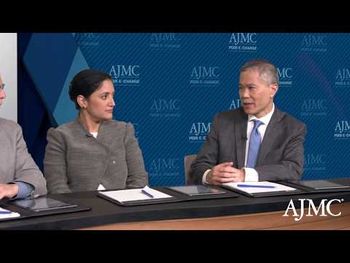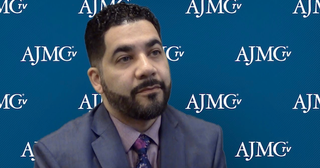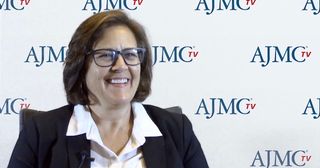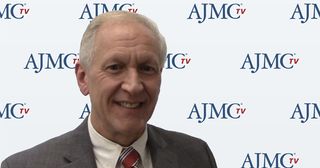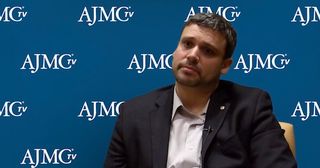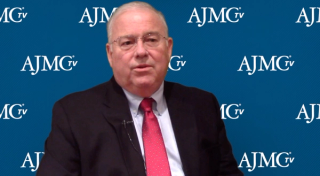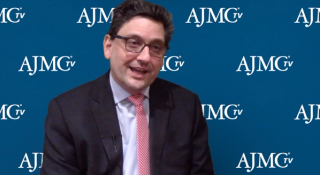
Oncology
Latest News
Latest Videos

CME Content
More News

When asked why drug prices are so high, manufacturers offer some version of the same answer: the cost of research and development. Although there is debate over how much it actually costs to bring new therapies to market, a 2016 study by Tufts University put the price tag at $2.56 billion (in 2013 dollars), and researchers found costs were rising 8.5% a year. Failure rates of drugs also contribute to their high prices. A 2018 paper coauthored by Andrew Lo, PhD, of the Massachusetts Institute of Technology found that the probability of success in clinical trials was 13.8%, but the success rate within just oncology was 3.4%.

The availability of biosimilar products may improve access to healthcare by increasing the number of therapeutic options available at potentially lower costs. As of April 2019, 18 such biological products had been approved by the FDA, including 4 biosimilars for trastuzumab, 3 each for infliximab and adalimumab, 2 each for pegfilgrastim and filgrastim, and 1 each for rituximab, epoetin alfa, bevacizumab, and etanercept. The pace of approvals has accelerated, from the first indication for a filgrastim biosimilar in 2015 to 3 approvals in 2016, 5 in 2017, and 9 through early 2019, 7 of which were announced in the 2018 calendar year.

There is an epidemic failure within the game to understand what is really happening. ––Peter Brand (Jonah Hill), Moneyball, 2011.

A year ago, the National Comprehensive Cancer Network (NCCN) added the word “accessible” to its mission statement, stating that the group is “dedicated to improving and facilitating quality, effective, efficient, and accessible cancer care so that patients can live better lives.”

The US healthcare system remains one of the most inefficient healthcare systems in the world. The Bloomberg Health-Care Efficiency Index ranked the United States 54th among 56 countries in 2018, tied with Azerbaijan and only ahead of Bulgaria. This occurs even though the United States spends $10,244 per capita annually on healthcare, a figure representing 17% of the gross domestic product.

More and more, stakeholders across the healthcare system— providers, commercial payers, pharmaceutical companies, large employers, state Medicaid officials, and even state budget officers—are grappling with the fact that the old pay-as-you-go way of covering medicines, even cancer drugs, was not built for these revolutionary therapies. A group at MIT is developing new models, which use reinsurance and payments over time to fund these durable treatments.

The authors examined the latest trends in development, implementation, and evaluation of care pathways and the impact of the movement toward value-based care.
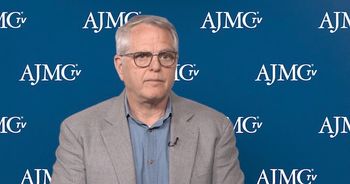
Is chemotherapy really on its way out? Maybe not, said Bruce Feinberg, DO, vice president and chief medical officer of Cardinal Health Specialty Solutions.

Every week, The American Journal of Managed Care® recaps the top managed care news of the week, and you can now listen to it on our podcast, Managed Care Cast.

Differences in cancer care spending and utilization between Medicare beneficiaries receiving chemotherapy in hospital outpatient departments versus physician offices vary by service type.

Two posters presented at the 2019 American Society of Clinical Oncology Annual Meeting, held May 31 to June 4, 2019, in Chicago, Illinois, discussed the growing issue of financial toxicity and the costs of care in cancer treatment.

The prices of targeted oncology therapies have grown substantially, but revenues have not. This is due in part to large declines in per-drug patient counts.

As new innovations in cancer care reach the market, some people seem ready to move on from chemotherapy, but the treatment will still have a role to play in treating cancer for years, if not decades, to come.

The expanding arsenal of targeted and immuno-oncology drugs has unalterably changed the landscape of systemic cancer treatment, but chemotherapy will remain critical for years if not decades to come.

A pair of study abstracts presented at the 2019 American Society of Clinical Oncology Annual Meeting in Chicago, Illinois, supported the efficacy of entrectinib among 2 different groups of patients, including patients with a rare form of lung cancer and pediatric and adolescent patients with solid tumors.
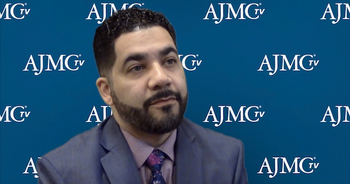
The Oncology Care Model (OCM) is pushing cancer centers and cancer programs to make the changes they knew were needed to improve care delivery and patient experiences, said David Ortiz, OCM program director at Montefiore Einstein Center for Cancer Care.

There has been much speculation about the end of chemotherapy in cancer treatment, but it’s not clear how accurate that is, said Bruce Feinberg, DO, vice president and chief medical officer of Cardinal Health Specialty Solutions.

Though chimeric antigen receptor (CAR) T-cell therapy has been largely touted as one of the most important advances in cancer care in recent years, the therapy comes with the risk of severe toxicities as well as increased financial burden due to the high cost of the drugs.

Outlining a set of issues that need to be addressed under the Oncology Care Model (OCM), the Community Oncology Alliance (COA) is urging the Center for Medicare & Medicaid Innovation to delay the October 2019 deadline for practices to transition to 2-sided risk under the model.

“How do you currently collaborate with your primary care colleagues in caring for patients with cancer?” This was how Larissa Nekhlyudov, MD, MPH, opened a session titled “Bringing the Primary Care Physician Back Into Cancer Care,” during the American Society of Clinical Oncology’s Annual Meeting, held in Chicago, Illinois from May 31-June 4, 2019.

This is part 3 of a 3-part vaccine series covering the potential of vaccines for infectious diseases, the impact of the antivaccination movement, and the promise of vaccines for cancer treatment. Read part 1 and part 2.

In the first of a series of interviews with key opinion leaders (KOLs), Amy Ellis, director of quality and value-based care at Northwest Medical Specialties, discusses practice transformation with Jess Quiring, a patient navigator at New Mexico Cancer Center.

The median lag time from first-in-human to first-in-child trials of oncology drugs that were ultimately approved by FDA is 6.5 years.

The long time between when a performance period ends and when the report comes out in the Oncology Care Model (OCM) can make it difficult to measure the impact specific changes are making, said David Ortiz, OCM program director at Montefiore Einstein Center for Cancer Care.
